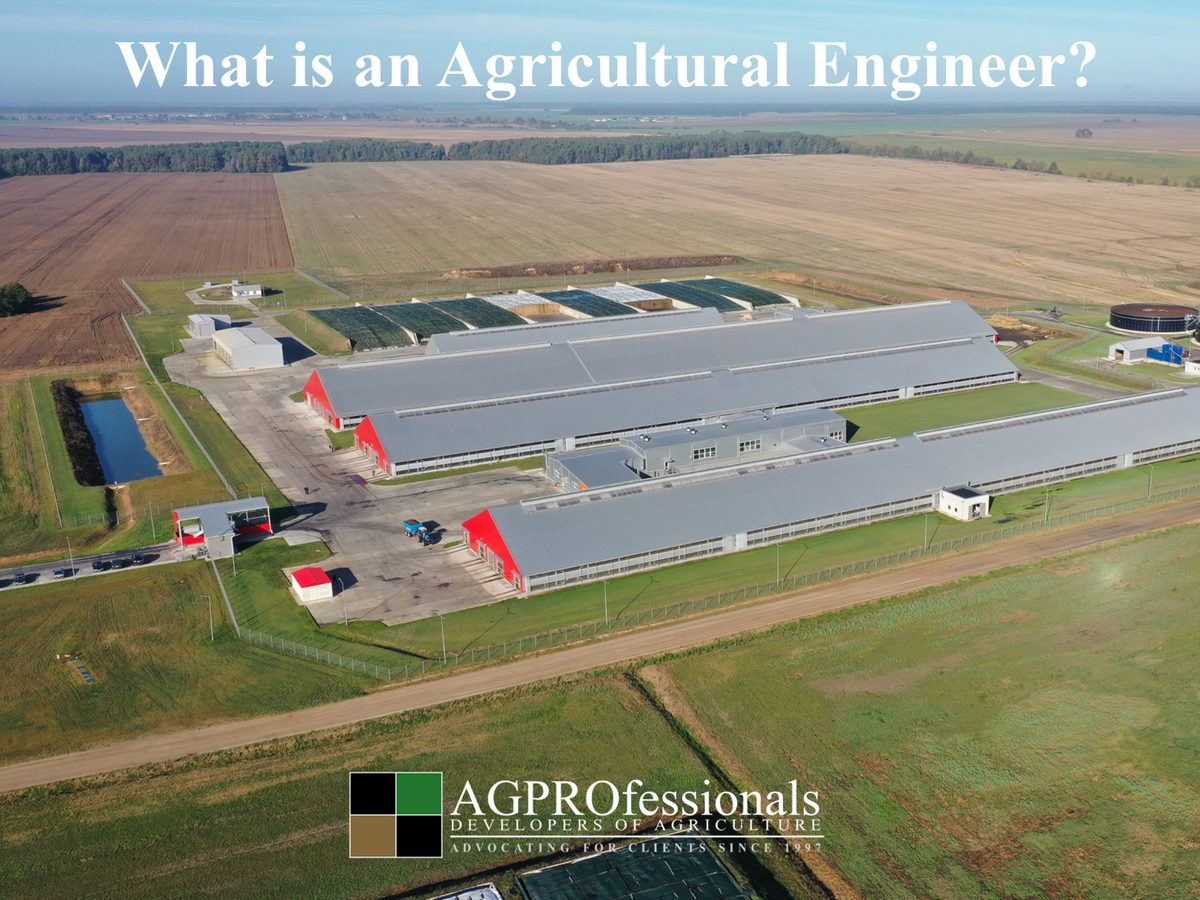
Agricultural Engineers: Bringing Innovation to Help Producers Thrive
Agricultural engineering is a broad technical area that can span machinery, computers, structures, drainage, and animals, among other aspects of the industry. It’s a specialized field that combines principles of civil, mechanical, and environmental engineering to meet the unique challenges of agricultural production. From facility design to environmental compliance, agricultural engineers play a critical role in supporting sustainable, efficient, and resilient agricultural operations.
AGPROfessionals specializes in the civil engineering portion of ag engineering. Specifically, we work on:
- Manure management systems, including animal manure, barn wash water, and other farm-produced water.
- Engineering for the construction of agricultural buildings and storage facilities to create a system that is functional, sustainable, and cost-efficient.
- Site layouts and grading for animal facilities to ensure drainage, animal comfort, and efficiency for workers.
- Planning and design for flood and water systems, such as grading, drainage, lagoons, and retention ponds.
- Planning and designing irrigation systems for crop production.
- Permitting for local regulations, Confined Animal Feeding Operations (CAFOs)
The Agricultural Engineer’s Role
While engineering is often associated with urban infrastructure like roads, bridges, or skyscrapers, agricultural engineers apply similar technical expertise to support one of the most essential, challenging, and changing industries in the world: agriculture.
Agricultural engineers operate at the intersection of environmental science, food production, and rural infrastructure. They support farms, feedlots, dairies, and other agricultural entities by integrating engineering solutions that promote productivity, regulatory compliance, and long-term sustainability.
Core Functions of Agricultural Engineering
1. Facility Planning and Design
Agricultural engineers contribute to the layout and structural planning of confined animal feeding operation (CAFO) facilities such as barns, milking parlors, commodity storage areas, silage bunkers, and working pens. Considerations often include site grading, building materials, drainage systems, manure management systems, air flow, and the movement patterns of livestock and equipment.
Agricultural engineers ensure that design elements meet operational needs, animal welfare standards, and regulatory requirements. At AGPROfessionals, we specialize in tailoring these designs for efficiency, safety, and long-term durability.
2. Manure, Wastewater, and Stormwater Management
Effective waste and stormwater management is an essential component of modern agricultural engineering, requiring precise planning and engineering. Agricultural engineers:
- Design and size systems for wastewater handling, stormwater runoff, and manure storage, including lagoons, pumps, and separators.
- Determine whether a site needs mechanical or gravity-based manure separation.
- Develop nutrient management plans that ensure land applications meet agronomic rates and are specific for each facility.
3. Technology and Sustainability Integration
Agricultural engineers are key players in advancing sustainable practices and integrating emerging technologies. They help implement technologies that boost efficiency, protect natural resources, and reduce environmental impacts, all while keeping farms productive for decades to come.
At AGPROfessionals, it’s not just about solving today’s problems. We support cutting-edge projects such as:
- Anaerobic digester installations to convert waste into clean energy, reducing emissions and creating new revenue streams.
- Solar-powered systems for energy resilience.
- Roller-compacted concrete to manage stormwater and provide a durable infrastructure in feedlots and dairies.
- Water reuse and recycling systems to minimize environmental impact.
These innovations aren’t just about solving today’s problems; they are about building operations resilient enough for future generations to return to the farm and carry the legacy forward.
4. Rural-Urban Interface Development
As urban expansion intersects with agricultural land, agricultural engineers play a pivotal role in ensuring that farms can coexist with new development. It’s a delicate balance that AGPROfessionals engineers often help clients navigate.
This includes:
- Ensuring that the development complies with city and county codes.
- Coordinating with city and county agencies on infrastructure needs.
- Preparing traffic studies, utility plans, and grading design.
- Supporting land use planning to protect agricultural productivity while accommodating growth.
5. Regulatory Navigation and Technical Translation
Perhaps most importantly, agricultural engineers are translators. They often serve as liaisons between producers and regulatory agencies, translating operational needs into engineering documents, permit applications, construction plans, and timelines. Their ability to bridge the language of regulation with the realities of agricultural operations is central to project success.
For example, AGPROfessionals agricultural engineers have worked with dairy expansion projects to ensure that nutrient loading limits are met, among other key factors. We’ve helped a new feedyard move its permit forward despite a tight water budget. Our agricultural engineers understand the regulatory language, the practical needs of the guy driving the loader, and the goals of the operation’s owner.
A Practical Approach to Agricultural Problem-Solving
We know that in agriculture, success is measured by the crops grown, milk shipped, and cattle fed. Your AGPROfessionals team brings this mindset to every project, engineering solutions for the real world of agriculture. Our work doesn’t end at the drawing board, though. We support you through construction, inspection, and even regulatory review to help ensure that you’re meeting your goals.
At AGPROfessionals, we provide turnkey solutions for dairies, feedlots, and row crop farms across the Western U.S. Our team of licensed engineers helps producers navigate permitting, design efficient infrastructure, and adopt innovative technologies while protecting natural resources and complying with regulations.
